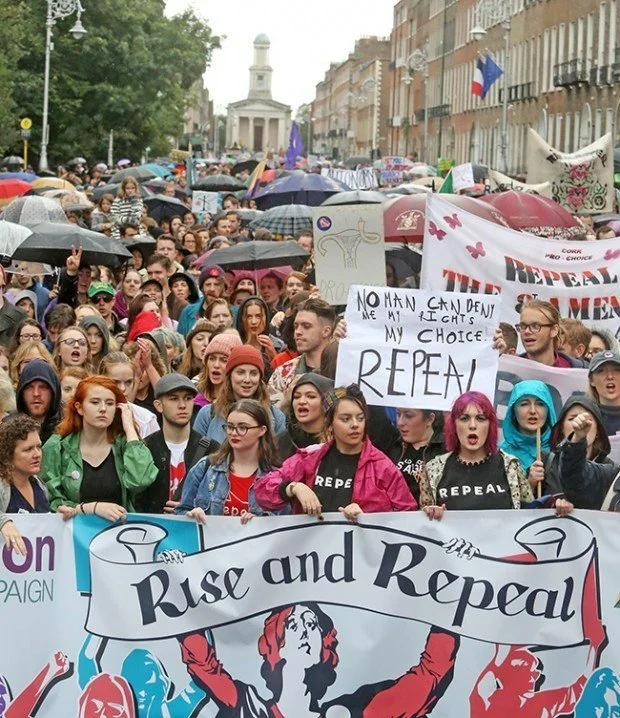“She is finally home”: feminist storytelling, family imaginaries and transnational solidarity in Irish abortion activism
When Deirdre Ni Chloscai wears her black sweater emblazoned with the word “REPEAL” in bold white letters, her friends in New York are confused. “People always ask me what it means,” she says. “And when I tell them what’s going on back in Ireland, they’re shocked. It just seems so outdated to them” (from Time magazine, 2018).
Across the so-called West, feminist storytelling positions reproductive justice and the often-twinned issue of women’s place within the family as a progressive issue. This conveniently ignores the inherent contradictions of the existence of only limited access to abortion in many Western nations, as well as parallel histories of access to reproductive justice in non-Western countries. Postcolonial Ireland, as an apparently Western country with a renowned history of anti-feminist legislation, has existed as one of these contradictions. In this article, we examine Irish feminists’ familial storytelling to reveal how they managed their contradictory position in a teleological narrative that positioned Western feminism as the epitome of progress. We adopt a comparative approach – looking at the lead up to the introduction of the Eighth Amendment of the Irish Constitution in 1983, which awarded the foetus constitutional rights, and then the high profile Repeal the 8th movement that successfully revoked that amendment in 2018 – to understand reproductive rights activists’ changing uses of “the family” to effect intergenerational and transnational solidarity. Applying Sara Ahmed’s concept of “sticky” emotions, we examine how feminists transformed “the Irish family” from a site of coldness and despair to one of hope, dignity, humanity and happiness.
